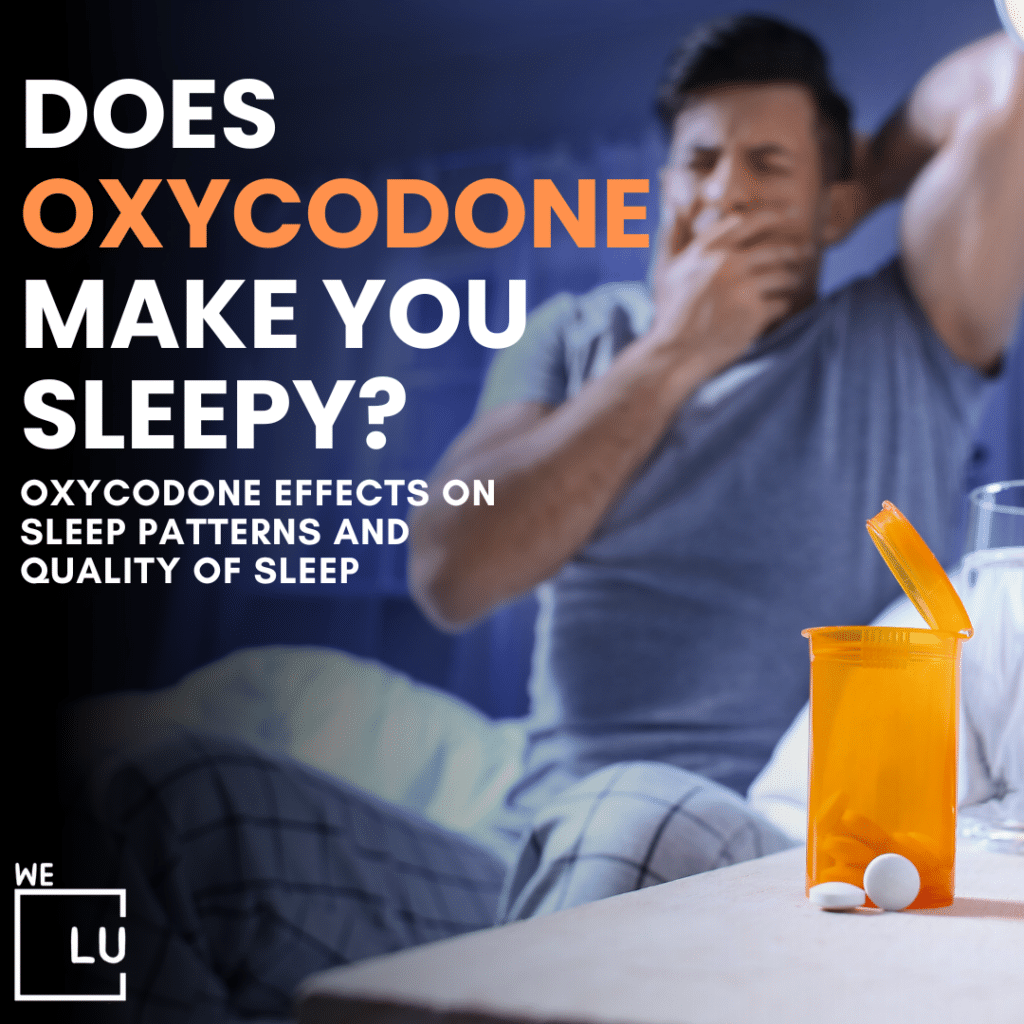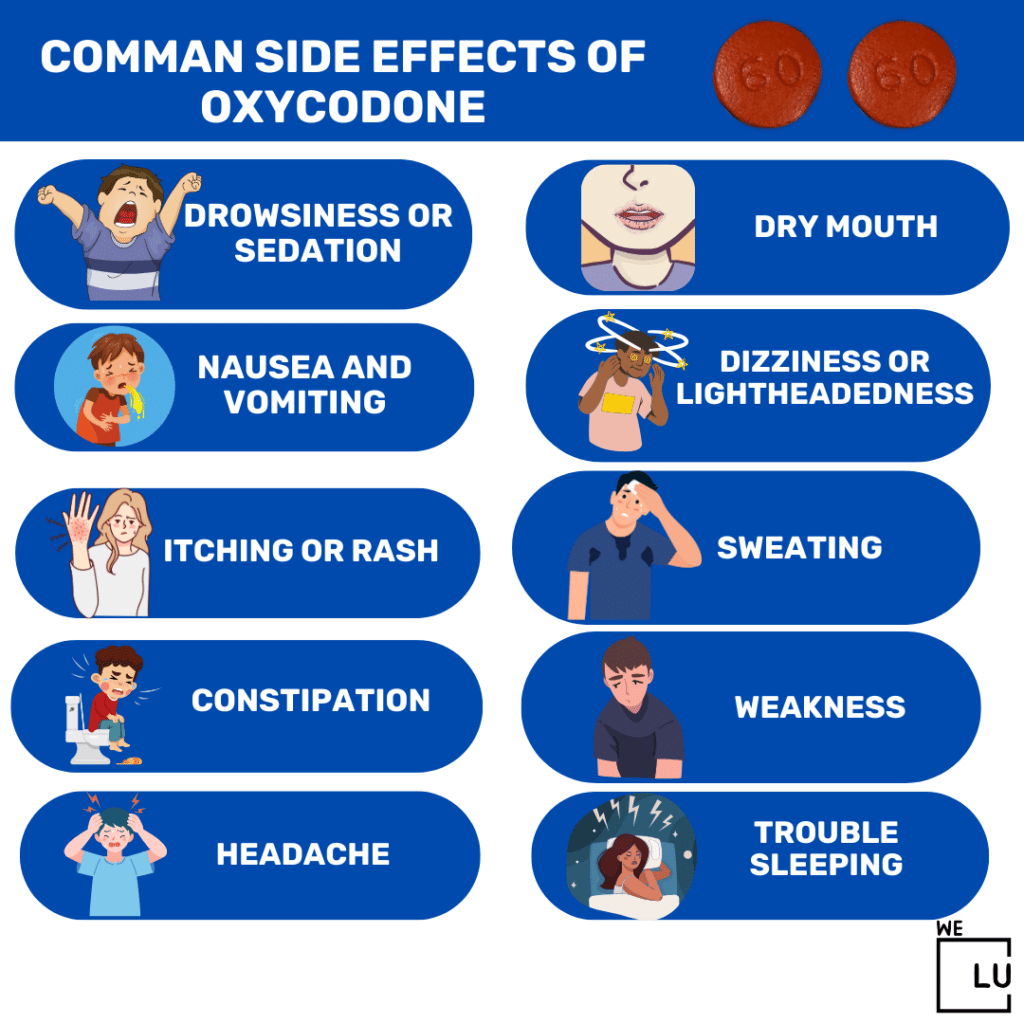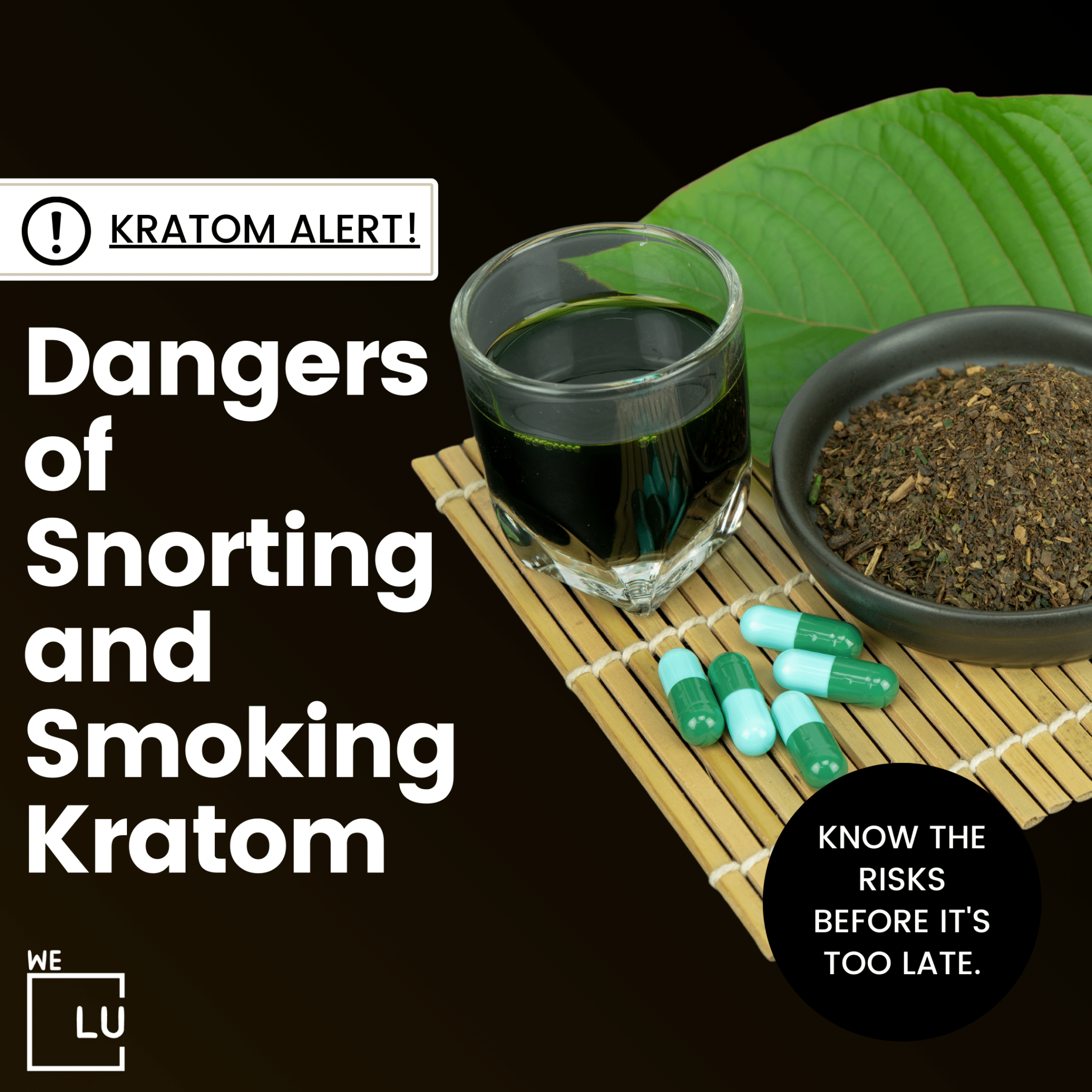Does Oxycodone Make You Sleepy?
Oxycodone is an opioid analgesic commonly used for the management of moderate to severe pain. Opioids like oxycodone can have soothing effects on the central nervous system, and one of the side effects of these medications is drowsiness or sleepiness. However, the sedative effects can vary among individuals.
While some people may experience drowsiness as a side effect of oxycodone, others may not be affected in the same way. Additionally, the sedative effects of opioids are often more pronounced when the medication is first taken or when the dosage is increased. Taking Opioids long-term can also lead to poor sleep and other sleep disorders.
Opioids like oxycodone also carry the risk of other side effects, including respiratory depression, constipation, nausea, and the potential for dependence and addiction. Therefore, make sure to use these medications only as a healthcare professional prescribes and to be aware of and manage potential side effects.
What Sleeping Problems Can Oxycodone Cause?
Oxycodone, like other opioids, can potentially cause sleep-related issues as a side effect. Some common sleep-related problems associated with oxycodone use include:
- Drowsiness or Sedation: Opioids, including oxycodone, can cause drowsiness or sedation, especially when you first start taking them or when the dosage is increased. This effect may interfere with your ability to stay awake and alert during the day.
- Disrupted Sleep Patterns: Opioids can disturb the normal sleep cycle, leading to changes in sleep patterns. This may result in fragmented or disturbed sleep, making it difficult to achieve restful and refreshing sleep.
- Night Sweats: Some individuals may experience night sweats or excessive sweating as a side effect of opioids, contributing to discomfort during sleep.
- Sleep Apnea: Opioids, including oxycodone, can potentially exacerbate sleep apnea—a condition characterized by pauses in breathing during sleep. If someone already has sleep apnea, the use of opioids may worsen the condition.
- Central Sleep Apnea: In rare cases, opioids can cause or contribute to central sleep apnea, a type of sleep apnea where the brain fails to send the appropriate signals to control breathing during sleep.
The impact of oxycodone on sleep can vary among individuals. Some people may experience these side effects, while others may not be as affected. Additionally, the risk of sleep-related problems may be higher with higher doses and longer terms of taking the medication.
If you are experiencing sleep-related issues while taking oxycodone, you should discuss these concerns with your healthcare provider. They can assess your overall health, adjust your medication if necessary, and guide you in managing sleep-related side effects. Make sure to use opioids under the supervision and guidance of a healthcare professional to minimize the risk of adverse effects.
Why Does Oxycodone Affect Your Sleep?
Oxycodone and other opioids can affect sleep through various mechanisms, primarily related to their impact on the central nervous system. Here are some reasons why oxycodone may influence sleep:
- Central Nervous System Depression: Opioids like oxycodone are central nervous system depressants, meaning they slow down the activity of the brain and spinal cord. This can result in sedation and drowsiness, which may interfere with the normal sleep-wake cycle.
- Respiratory Depression: Opioids can cause respiratory depression, which is a decrease in the rate and depth of breathing. While this effect is more significant at higher doses, even therapeutic doses of opioids can affect respiratory function. Changes in breathing patterns can disrupt sleep and contribute to sleep apnea.
- Altered Sleep Architecture: Opioids can alter the normal structure of sleep by reducing the time spent in rapid eye movement (REM) sleep and increasing the time spent in lighter stages of sleep. This alteration in sleep architecture may impact the overall quality of sleep.
- Night Sweats: Opioids, including oxycodone, may cause sweating as a side effect. Night sweats can disrupt sleep and lead to discomfort, further contributing to sleep disturbances.
- Tolerance and Dependence: With prolonged use of opioids, the body can develop tolerance, requiring higher doses to achieve the same pain-relieving effects. Tolerance can also extend to some of the sedative effects, potentially leading to changes in sleep patterns.

Skip To:
Learn More:
- Oxycodone Vs Oxycontin. What Is The Difference And Similarities?
- Oxycodone and Hydrocodone, Side Effects, Forms, Dosages, Differences & Interactions
- How Long Does Oxycodone Stay In Your System?
- How long do opiates stay in your system? Specifics, Addiction, Drug Processing & Treatment
- Opiate Withdrawal, Effects, Causes, Symptoms, Diagnosis, Complications, Detox & Treatments
Can You Use Oxycodone For Sleep?
Oxycodone is not typically explicitly prescribed for sleep-related issues. It is an opioid analgesic primarily used for the management of moderate to severe pain. While oxycodone can have sedative effects and may cause drowsiness, it is not considered a first-line treatment for sleep disorders or insomnia.
Using opioids like oxycodone for sleep is generally not recommended due to several reasons:
- Tolerance and Dependence: Opioids can lead to tolerance, where, over time, higher doses are needed to achieve the same pain-relieving effects. Additionally, long-term use can result in physical dependence, and abrupt discontinuation can lead to withdrawal symptoms.
- Risk of Addiction: Opioids, including oxycodone, have the potential for abuse and addiction. Using these medications for purposes other than pain management, such as promoting sleep, increases the risk of developing dependence and addiction.
- Side Effects: Opioids can cause a range of side effects, including respiratory depression, constipation, nausea, and dizziness. These side effects may outweigh any potential benefits of sleep, and the risks must be carefully considered.
- Impact on Sleep Architecture: While opioids can induce drowsiness, they can also disrupt the normal structure of sleep, potentially leading to less restful and restorative sleep.
If you are experiencing sleep difficulties, consult with a healthcare professional who can evaluate the underlying causes of your sleep issues and recommend appropriate treatments. There are safer and more effective medications and non-pharmacological approaches designed explicitly for managing sleep disorders and promoting healthy sleep.
Using prescription medications, especially opioids, without proper medical supervision can be risky and is not advisable. Always follow the guidance of your healthcare provider and inform them of any concerns or difficulties you may be experiencing with sleep. They can tailor a treatment plan that addresses your needs and minimizes potential risks.

Get Your Life Back
Find Hope & Recovery. Get Safe Comfortable Detox, Addiction Rehab & Dual Diagnosis High-Quality Care.
Hotline (855) 695-1160Uses Of Oxycodone
Oxycodone is a potent opioid analgesic (pain-relieving medication) that is commonly prescribed for the management of moderate to severe pain. Here are some common uses of oxycodone:
- Pain Management: Oxycodone is primarily prescribed to alleviate pain that is moderate to severe in intensity. It is often used in situations where other less potent pain relievers, such as nonsteroidal anti-inflammatory drugs (NSAIDs) or acetaminophen, are not sufficient for adequate pain control.
- Post-Surgical Pain: Oxycodone may be prescribed to manage pain following surgical procedures. It is often used in the short term to help patients cope with pain during recovery.
- Chronic Pain Conditions: In some cases, oxycodone may be prescribed for individuals with chronic pain conditions, such as cancer-related pain or pain associated with certain chronic illnesses. However, the use of opioids for chronic pain is a subject of ongoing debate due to concerns about long-term safety and the risk of dependence.
- Injury-related Pain: Oxycodone may be prescribed for pain resulting from injuries, such as fractures or severe trauma.
Oxycodone is a potent medication with a high potential for abuse and addiction. As such, it is typically prescribed cautiously and for a limited duration. Healthcare providers consider the individual patient’s medical history, the nature and severity of the pain, and the potential risks and benefits of using oxycodone when making prescribing decisions.
Patients taking oxycodone should be closely monitored by their healthcare providers, and the medication should be used strictly as prescribed. Long-term use of opioids like oxycodone requires careful consideration of potential risks, including the development of tolerance, dependence, and addiction.
Get Help. Get Better. Get Your Life Back.
Searching for an Accredited Drug and Alcohol Rehab Centers in Near You?
Even if you have failed previously and relapsed, or are in the middle of a difficult crisis, we stand ready to support you. Our trusted behavioral health specialists will not give up on you. When you feel ready or just want someone to speak to about therapy alternatives to change your life call us. Even if we cannot assist you, we will lead you to wherever you can get support. There is no obligation. Call our hotline today.
FREE Addiction Hotline – Call 24/7
Side Effects Of Oxycodone
Oxycodone, like other opioid medications, can cause a range of side effects, ranging from mild to severe. Not everyone will experience these side effects, and the severity and occurrence can vary among individuals. Additionally, the risk of side effects is influenced by factors such as the dose of the medication, duration of use, and individual differences in sensitivity.
Mild Side Effects
- Drowsiness: Oxycodone can cause drowsiness or sedation, especially when starting the medication.
- Constipation: Opioids, including oxycodone, commonly cause constipation. Stay hydrated and, if necessary, use over-the-counter remedies with the guidance of a healthcare provider.
- Nausea and Vomiting: Some individuals may experience nausea or vomiting as a side effect of oxycodone.
- Dizziness or Lightheadedness: Oxycodone can cause dizziness or lightheadedness, especially when standing up quickly.
- Itching or Rash: Some people may develop itching or a rash as a side effect.
- Dry Mouth: Opioids can cause a dry mouth, contributing to dental issues. Maintaining good oral hygiene is important.
Severe Side Effects
- Respiratory Depression: This is a potentially severe side effect where breathing becomes slow and shallow. It is more likely to occur at higher doses.
- Hypotension: Oxycodone can cause low blood pressure, leading to dizziness or fainting.
- Allergic Reactions: In rare cases, individuals may experience allergic reactions, including swelling, severe itching, or difficulty breathing.
- Severe Constipation: While constipation is a common side effect, in some cases, it can become severe and may require medical attention.
- Adrenal Insufficiency: Long-term use of opioids can affect the adrenal glands, leading to a condition called adrenal insufficiency.
- Increased Intracranial Pressure: Oxycodone may elevate pressure within the skull, which can concern individuals with head injuries or pre-existing conditions affecting intracranial pressure.
Use oxycodone under the supervision of a healthcare provider and report any unusual or severe side effects promptly. Seek emergency medical attention if you experience difficulty breathing, severe allergic reactions, or other serious symptoms.
Long-term use of opioids should be carefully monitored, and patients should work closely with their healthcare providers to manage pain while minimizing potential risks and side effects.
Comfortable Facilities & Amenities
High-Quality Addiction & Mental Health Rehabilitation Treatment
Rehab Centers TourRenowned California Addiction Center. Serene Private Facilities. Inpatient rehab programs vary.
Addiction Helpline (855) 695-1160Proven recovery success experience, backed by a Team w/ History of:
15+
Years of Unified Experience
100s
5-Star Reviews Across Our Centers
10K
Recovery Success Stories Across Our Network
- Low Patient to Therapist Ratio
- Onsite Medical Detox Center
- Comprehensive Dual-Diagnosis Treatment
- Complimentary Family & Alumni Programs
- Coaching, Recovery & Personal Development Events
How To Take Oxycodone
The specific instructions for taking oxycodone can vary depending on the formulation and your medical condition. It’s crucial to follow your healthcare provider’s guidance and the instructions provided on the prescription label. Here are general guidelines for taking oxycodone:
- Dosage: Take oxycodone exactly as prescribed by your healthcare provider. The dosage is determined based on factors such as your pain’s severity, medical history, and your response to the medication.
- Formulation: Oxycodone comes in various formulations, including immediate-release (IR) and extended-release (ER). Immediate-release oxycodone is typically taken every 4 to 6 hours as needed for pain, while extended-release formulations are taken less frequently, often every 12 hours. Follow the specific instructions for the formulation prescribed to you.
- Swallow Whole: Swallow oxycodone tablets or capsules whole with a full glass of water. Do not crush, chew, break, or dissolve the medication, as it can affect the way the drug is released and increase the risk of side effects.
- With or Without Food: Oxycodone can be taken with or without food, but taking it with food may help reduce the risk of nausea.
- Consistent Schedule: Try to take oxycodone at the exact times each day to maintain a consistent level of the medication in your system.
- Avoid Alcohol: Avoid consuming alcoholic beverages while taking oxycodone, as it can increase the risk of side effects, including respiratory depression.
- Follow-Up with Your Healthcare Provider: Attend regular follow-up appointments with your healthcare provider to monitor your response to the medication and adjust the dosage as needed.
- Do Not Self-Adjust: Do not change the dosage or stop taking oxycodone without consulting your healthcare provider. Abruptly stopping opioid medications can lead to withdrawal symptoms.
- Store Safely: Keep oxycodone in a secure place, out of reach of children and pets. Store it at room temperature, away from moisture and heat.

World-class, Accredited, 5-Star Reviewed, Effective Addiction & Mental Health Programs. Complete Behavioral Health Inpatient Rehab, Detox plus Co-occuring Disorders Therapy.
CALL (855) 695-1160End the Addiction Pain. End the Emotional Rollercoaster. Get Your Life Back. Start Drug, Alcohol & Dual Diagnosis Mental Health Treatment Now. Get Free No-obligation Guidance by Substance Abuse Specialists Who Understand Addiction & Mental Health Recovery & Know How to Help.

Oxycodone Overdose
An Oxycodone overdose can be a severe and potentially life-threatening medical emergency. Overdose occurs when a person takes more oxycodone than their body can effectively metabolize, leading to a toxic buildup of the drug in the system. Overdose symptoms can vary in severity, but they may include:
- Extreme Drowsiness: Individuals may become tired or lethargic and have difficulty staying awake.
- Confusion: Oxycodone overdose can cause confusion and impaired cognitive function.
- Difficulty Breathing: Respiratory depression is a hallmark of opioid overdose, and individuals may experience slow, shallow, or difficulty breathing. In severe cases, it can lead to respiratory failure.
- Bluish or Pale Skin: Cyanosis, a bluish or pale skin discoloration, especially around the lips and fingertips, may occur due to insufficient oxygenation.
- Constricted Pupils: Opioid overdose can cause pinpoint pupils, where the pupils become very small.
- Weakness and Fatigue: Individuals may feel weak and fatigued.
- Loss of Consciousness: In severe cases, an overdose can lead to loss of consciousness or coma.
If you suspect an oxycodone overdose, it is crucial to seek emergency medical attention immediately. Call your local emergency number or go to the nearest emergency room. Timely intervention can be critical in reversing the effects of the overdose.
Opioid overdoses can be reversed with the administration of naloxone, an opioid antagonist. Naloxone rapidly binds to opioid receptors in the brain, displacing the opioids and restoring normal respiratory function. In some regions, naloxone is available as a nasal spray or an injectable, and it is sometimes carried by individuals at risk of opioid overdose or their caregivers.
If you or someone you know is prescribed oxycodone or another opioid, make sure to take the medication exactly as prescribed by a healthcare provider and to be aware of the signs of overdose. Additionally, individuals with a history of substance use disorder or those at risk for overdose should discuss the availability and use of naloxone with their healthcare provider.
Experience Transformative Recovery at the We Level Up California Treatment Center.
See our authentic success stories. Get inspired. Get the help you deserve.



Start a New Life
Begin with a free call to an addiction & behavioral health treatment advisor. Learn more about our dual-diagnosis programs. The We Level Up treatment center network delivers recovery programs that vary by each treatment facility. Call to learn more.
- Personalized Care
- Caring Accountable Staff
- World-class Amenities
- Licensed & Accredited
- Renowned w/ 100s 5-Star Reviews
We’ll Call You
Losing My Daughter, Suicide Attempts & Homeless: Opiates Crack Addiction to Recovery & College and..
Search We Level Up CA Does Oxycodone Make You Sleepy, Drug & Alcohol Rehab / Detox & Mental Health Topics & Resources
Sources
- US Equal Employment Opportunity Commission (EEOC) – Use of Codeine, Oxycodone, and Other Opioids: Information for Employees – https://www.eeoc.gov/laws/guidance/use-codeine-oxycodone-and-other-opioids-information-employees
- Drug Enforcement Administration. “Oxycodone.” April 2020. Read More: Does Oxycodone Make You Sleepy, Oxycodone Sleep, Oxycodone For Sleep
- DEA – Oxycodone – https://www.dea.gov/factsheets/oxycodone Read More: Does Oxycodone Make You Sleepy, Oxycodone Sleep, Oxycodone For Sleep
- MedLine Plus – Oxycodone – https://medlineplus.gov/druginfo/meds/a682132.html Read More: Does Oxycodone Make You Sleepy, Oxycodone Sleep, Oxycodone For Sleep
- FDA – Oxycontin Label – https://www.accessdata.fda.gov/drugsatfda_docs/label/2008/020553s059lbl.pdf Read More: Does Oxycodone Make You Sleepy, Oxycodone Sleep, Oxycodone For Sleep
- Opioid addiction – U.S. National Library of Medicine (medlineplus.gov)
- Sadiq NM, Dice TJ, Mead T. Oxycodone. In: StatPearls [Internet]. Treasure Island (FL): StatPearls Publishing; 2023 Jan-. Available from: https://www.ncbi.nlm.nih.gov/books/NBK482226/ Read More: Does Oxycodone Make You Sleepy, Oxycodone Sleep, Oxycodone For Sleep
- Cohen B, Ruth LJ, Preuss CV. Opioid Analgesics. [Updated 2023 Apr 29]. In: StatPearls [Internet]. Treasure Island (FL): StatPearls Publishing; 2023 Jan-. Available from: https://www.ncbi.nlm.nih.gov/books/NBK459161/ Read More: Does Oxycodone Make You Sleepy, Oxycodone Sleep, Oxycodone For Sleep
- Chou R, Hartung D, Turner J, et al. Opioid Treatments for Chronic Pain [Internet]. Rockville (MD): Agency for Healthcare Research and Quality (US); 2020 Apr. (Comparative Effectiveness Review, No. 229.) Available from: https://www.ncbi.nlm.nih.gov/books/NBK556253/
- National Academies of Sciences, Engineering, and Medicine; Health and Medicine Division; Board on Health Sciences Policy; Committee on Pain Management and Regulatory Strategies to Address Prescription Opioid Abuse; Phillips JK, Ford MA, Bonnie RJ, editors. Pain Management and the Opioid Epidemic: Balancing Societal and Individual Benefits and Risks of Prescription Opioid Use. Washington (DC): National Academies Press (US); 2017 Jul 13. Available from: https://www.ncbi.nlm.nih.gov/books/NBK458660/ doi: 10.17226/24781 Read More: Does Oxycodone Make You Sleepy, Oxycodone Sleep, Oxycodone For Sleep
- Zullo AR, Danko KJ, Moyo P, et al. Prevention, Diagnosis, and Management of Opioids, Opioid Misuse, and Opioid Use Disorder in Older Adults [Internet]. Rockville (MD): Agency for Healthcare Research and Quality (US); 2020 Nov. (Technical Brief, No. 37.) Available from: https://www.ncbi.nlm.nih.gov/books/NBK564144/ Read More: Does Oxycodone Make You Sleepy, Oxycodone Sleep, Oxycodone For Sleep




